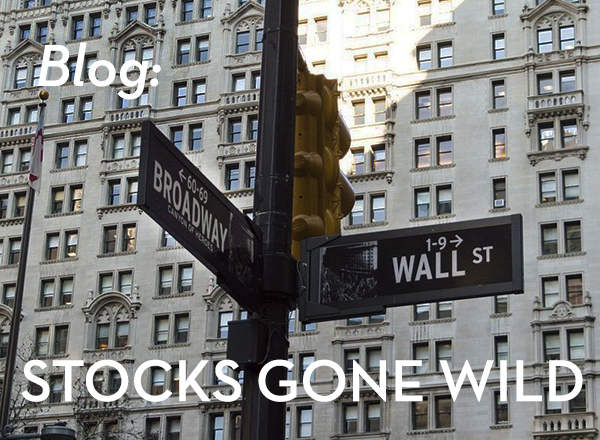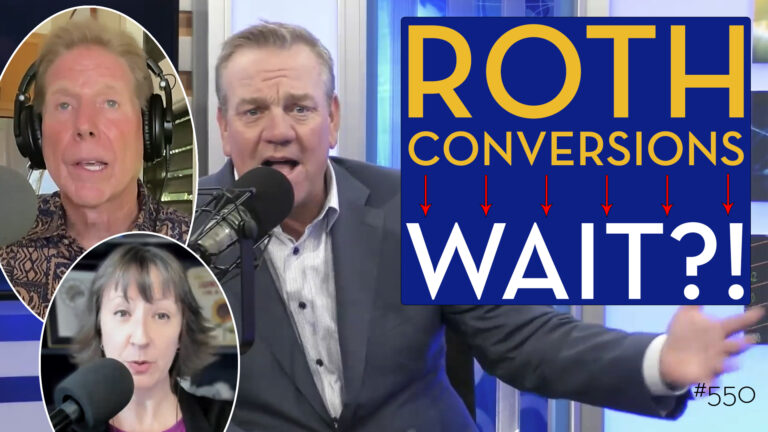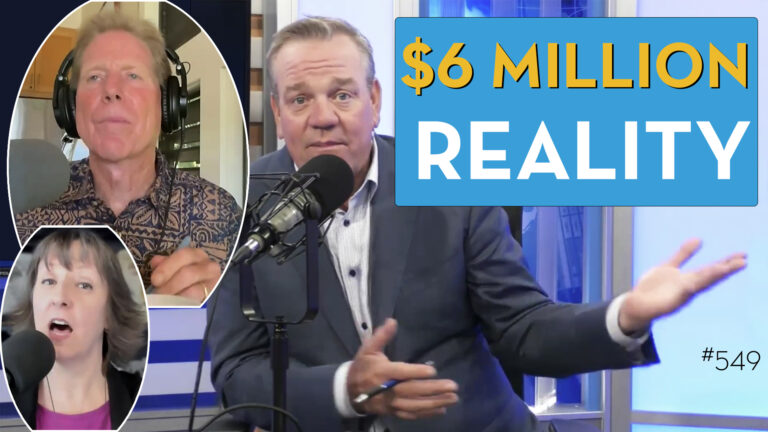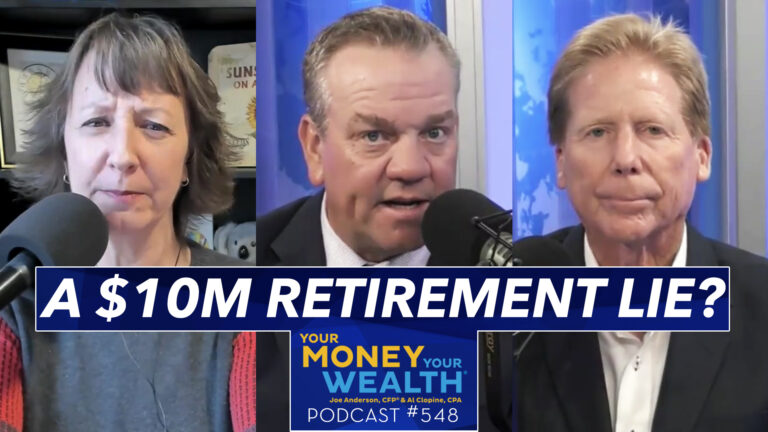This week GameStop, AMC and Blackberry stocks went wild, with hedge funds shorting the stocks, and Redditors using the Robinhood investing app to put the squeeze on them – to the tune of billions of dollars. Is the stock market rigged? How do these investing plays affect you and your portfolio? Should you get in on the day-trading craze? Pure Financial Advisors’ Executive Vice President and Director of Research Brian Perry, CFP®, CFA® joins Joe Anderson, CFP® to talk about it.
“The markets can remain irrational longer than you can remain solvent.” – John Maynard Keynes, Economist
Subscribe to the YMYW newsletter
FOLLOW US: YouTube | Facebook | Twitter | LinkedIn

Show Notes
Free resources:
READ THE BLOG | Stocks Gone Wild: Should You Join the Day Trading Craze?

Listen to today’s podcast episode on YouTube:
Transcription
What Happened With GameStop, AMC and BlackBerry Stock, Reddit, Robinhood, and Hedge Fund Managers?!
Joe: Couple of minutes just to chat about stocks going wild this week, And the stock market has been something incredible that I don’t think anyone saw coming or could predict or even fathom what really is going on here. So Brian Perry is a lot smarter than me in regards to the overall market. So I thought him and I will chat just a little bit, just to help you understand. I mean, there’s a lot of news, there’s a lot of headlines. And some of this stuff is investment jargon that high level investment professionals really don’t understand. And so when you look at the average retail investor getting some of this noise, we thought we would potentially kind of clear the, I guess, the static, if you will. So, Brian, welcome to the show.
Brian: Yeah, thanks. Thanks for having me. Good to be here.
Joe: So let’s, in broad strokes, tell me what the hell’s going on. And then we can kind of get a little bit more granular as we go here.
Brian: Yes. So it’s interesting because usually when it’s like, hey, Brian, come on in and let’s talk about stocks going crazy, usually it’s the prices are collapsing. Like back in the Spring with COVID and stuff. And this is the exact opposite. What we’re talking about is not so much the broader market, but a small handful of stocks, GameStop and AMC are pretty prominent. They’re just absolutely skyrocketing up. GameStop’s up 80,000% or something like that in the last 9 months. And just this year, it’s up massively.
Joe: It’s- it’s I mean, I think, I don’t know what is- and what we’re taping this, folks, on Friday, and the date today is the 29th of January, I believe. Andi?
Andi: Correct. Yes.
Joe: See, look at that. I don’t even have my phone in front of me. And I knew the date.
Andi: This podcast will be released today, by the way.
Joe: Ok. All right.
Brian: There you go.
Joe: So when you look at it, I mean, we’re not- I don’t have my ticker tape in front of me. So these things are moving so quickly and so fast. But in the beginning of the year, GameStop is at, what, $7 a share?
Brian: Yeah. And so and AMC- and then it went up into the $400s. AMC went from $2 to $20. And of course, guys, what goes up, goes down. Because at one point on what was it, Wednesday, I guess it was overnight, GameStop fell from $480 to like $130 in 80 minutes in the morning. AMC got cut in half and then they went back up again. And so incredible volatility in just these stocks.
Andi: Is this all because of Reddit?
Joe: Well, let’s talk about it. So basically, when you look at GameStop, you look at AMC, you look at Blackberry. So just to name a few of these stocks that are getting a lot of publicity because of the volatility in the overall movement of the stock prices. GameStop is like, it’s a brick and mortar store to buy video games. And I’ve never been to GameStop. I never really heard of GameStop before this. We all know what AMC, no one’s going to the movie theaters and they’re on the brink of bankruptcy. When’s the last time you see anyone use a Blackberry phone? I had a Blackberry phone. I thought I was the coolest kid in high school, but that was like 30 years ago, 20 years ago. So when you look at this, you look at these names that are up so high because the big hedge funds basically were shorting these companies. And so let’s stop there first and say, well, what the heck is shorting the company?
Brian: Yeah. So basically, when you look at companies, people form a judgment on whether or not it’s good. And we have no opinion on these companies, I’m like you, GameStop, all I know about is it’s next to Wetzel’s Pretzels. But the market was looking at the same brick and mortar retail selling video games, not a great business model. AMC, people can’t go-
Joe: It’s like Blockbuster.
Brian: Exactly. It’s the Blockbuster Video Games. AMC, maybe it’s a good business model. You know, people going to the movies and then COVID. Nobody’s going to the movies. And so people short the stock. And what that means is that when you buy a stock, you go what’s known as long. That means you think the price is going up. You own a stock just like many people have. There’s an opposite side of that. If you think the stock is going to go down, you can do what’s known as shorting it. You’re selling the stock, but you don’t own it. So what happens is that these- its first sophisticated investors for the most part, you go out and you borrow the stock, you borrow something that you don’t own and you sell it.
Joe: So let’s say hypothetical XYZ company is trading at $10 a share. And I believe that XYZ company is going to go down. It’s not going to go from $10 to $15. I think it’s going to go $10 to $5. So I’m going to go to you, Brian, and say, hey, you know what, I heard you have XYZ share. Can I borrow some of that from you?. And so it’s a loan. So basically Brian is lending me these shares. And so my anticipation is that the stock goes down and then what happens?
Brian: And then you buy it back. Because you owe the shares. And so what happens is you go to your custodian, to Schwab or Fidelity or JPMorgan or whoever it is, you borrow the shares, you sell them. And then the idea is you sold them at $10. Now it’s at $5. You buy it back and you deliver those shares back because you have to satisfy the stock loan. But you sold at $10, you bought it, $5, you made money.
Joe: You made $5.
Brian: Which is great. Right? Of course, the opposite can also happen. If it goes to $15, that’s not so good.
Joe: So when you’re shorting a stock, you believe that the market’s going to go down and so- you know, betting against someone is never really- and there was a movie, The Big Short. So they’re looking at Lehman Brothers. They’re looking at, oh, wait a minute, this housing crisis. Let’s take a look at some of these banks. Let’s take a look at whatever. And there’s- it’s not sustainable. So let’s short these stocks. And the movie came out that these guys were basically heroes, right? They made, you know, millions and billions of dollars on the credit crisis. But that kind of stings some people. You got Wall Street again making all this money and everyone else is suffering. And so when you look at COVID, a lot of people lost their jobs. They got furloughed, they lost wages. Whatever. Got sick. Died. I mean, there’s a lot of really bad things that have happened over the last 12, 13 months. And so then you get the big Wall Street firms again, profiting on COVID. Let’s say, Zoom, for instance. We’re on Zoom right now with Andi. Or these pharmaceutical drugs and you’re placing bets. But on the other side of the coin, what had happened is that you have these individual retail investors that are sitting at home. They’re on their computers. They want to make money because they’re out of a job. And so it’s like let’s get back at the man. So it’s like you’re shorting my video game company. We’re going to get you. And so they came out with these message boards on Reddit and they’re like banding together. And what they were trying to do, and what they did succeed at doing, was buying that stock. So if I’m trying- if I’m saying this stock’s going to go down, but then all of a sudden you got a lot of people buying the stock, what’s going to happen to the stock price?
Brian: Yeah, it’s going to go up.
Joe: It’s going to go up. And so all of a sudden, as that stock price goes up, and if I’m the big hedge fund, then I believe that the stock price is going to go down, as that stock price goes up, I’m losing my shorts here. I’m losing my assets, and I don’t want that to happen. I’m a hedge fund. And so all of a sudden it’s like, the stock prices keep going up. How can the stock price keep going up? Because this business is not a very viable business. But these people band together and said, no, let’s buy it, hold it, do not get out, buy, buy, buy. So they bought, bought, bought, and all of a sudden the hedge funds are like I got to cut my losses. So when they cut their losses, what do they have to do? They have to buy the stock because they never owned it. They were just- it was a loan. They were borrowing the stock. And so now you get even more money buying that stock, jacking that stock price up to the moon.
Brian: The term for that- it’s a short squeeze. And if you can picture a snowball going downhill, this is like a snowball going uphill. The price has been going up because these people are buying. Now the hedge fund or whoever shorted it needs to cover that f, so they bought. It adds momentum to the upward surge and the price goes higher and higher. And it may not make sense. I mean, these companies may or may not survive, right? For most of last year, there was fear of AMC going bankrupt because nobody could go to the movies. So maybe these companies survive, maybe they don’t. But one of the most famous sayings in Wall Street is ‘the market can stay irrational longer than you can stay solvent’. It doesn’t matter whether or not the hedge fund is right in the long term that the stock is worthless, or worth less. What matters is in the short run, at some point they need to throw in the towel and say, I can’t take anymore. I have to cover this position. That shoots the price higher. That’s the short squeeze. And that’s a lot of what we’re seeing.
Joe: And so a lot of individual retail investors made a lot of money. And then all of a sudden now you’ve got the brokerage firms, Robinhood- Robinhood, they’re gamifying, basically, investing, is they’re trying to get younger investors, retail or smaller investors because there’s no transaction costs and fees. So if you got $100, hey, you can buy some stock. And now they’re like, oh, no, we’re shutting down. E-Trade, no they’re shutting down. You cannot trade on these stocks anymore. And then it’s like, well, what are you doing now? Now you’re shutting me out. So now as soon as Wall Street hurts a little bit, they’re pulling the strings and they’re shutting them down. So that’s one view of it. The other view is that, hey, we’re trying to protect the smaller investor. Because this is extremely volatile stuff. And it could- the pendulum could go the other way very, very quickly and it could wipe out these individual investors out.
Brian: Yeah, and that’s the unintended consequences, right? I mean, it’s a good thing that you bring investing to the masses. You give them more information, you reduce transaction costs. It lets smaller investors get involved. That’s really a good thing. The unintended consequence is that it then makes some people that maybe don’t know what they’re doing or don’t understand the various risks they’re taking, they get really aggressive and they do- hey you see a stock go from $100 to $400. It’s like, hey, I want in on it.
Joe: I want in.
Brian: All my buddies are making money.
Joe: Yes. I got a text on Wednesday from Mikey Martin. He’s got the most listened-to podcast that we have. And he’s my best friend, but he’s the biggest idiot. It’s like buying yesterday’s stocks today. He shows me the ticker. He’s like, oh, am I too late? I’m going in. So, you know, he wants to put, like, $10,000 in and then he’s going to cover it with the VIX. It’s like he’s the worst investor of all time. But you get these headlines. It’s like, look at the stock up and people get excited because a lot of people are making a lot of money here and you can see it on these message boards. And so people are like, hey, I made this, I got this. And it’s like we banded together and we took down the big guy.
Brian: Yes. It’s Occupy Wall Street. Remember when people went down and camped outside of Goldman Sachs headquarters or whatever 10 years ago? It’s that. Except this time they’re actually making money doing it instead of living in a tent. And there’s that sense of ‘us against them’. And it’s part of- you see the populism, right? Whether it’s with some of the rhetoric out of the campaign trail, people marching on the capital and stuff like that. And some manifestations are worse than others, but that’s a lot of the messaging there. It’s hey, some of these people are still angry at Wall Street for 2008. Some of the people- some of the messages are my parents got hurt and stuff. And so they’re taking a pound of flesh away from the big guy and putting it in a pocket of the little guy, Robinhood. It’s the brokerage thing. And speaking of those brokerages, it’s really popular to yeah, they’re taking the opportunity away- they’re trying to protect. There’s also capital regulations where that’s what Robinhood said, is that because of the volatility of some of their stocks, they’re regulated by the government. They need to have certain levels of capital. They were afraid they would be insolvent or not able to satisfy some of those regulations. And so that’s what they’re claiming is the reason that they restricted some of this access.
Joe: So I guess what do we do with all this information? Basically, nothing. If you’re a long term investor, all of our clients are long term investors. Is the stock market rigged? Is you know, we get a lot of these questions. If you’re buying and holding really good companies that is completely diversified across the globe, you’re rebalancing your tax, managing the overall account. This is really interesting information of what’s going on with some smaller companies and having a group of people basically banding together-
Andi: Brian, are we talking 50 people or thousands of people?
Brian: The site has 3,000,000 users right now. So we don’t know how many of those are actually buying it, but, yeah, it seems- it’s got to be a lot of them, right? I mean, to move the market-
Joe: to move the market that much-
Brian: Yeah, it’s got to be thousands, tens of thousands-
Joe: But as soon as the stock price started ticking up, these hedge funds have trillions. And so when they’re covering their shorts- no pun intended there, huh?
Brian: Yeah.
Joe: And then that just added fuel to the overall fire.
Brian: But here’s the key, is that in the short run, the market’s a voting machine. In the long run, it’s a weighing machine. So in the short run, sentiment wins and people get irrationally exuberant or they get really afraid. And you see what happened back in the Spring. Markets collapsed and probably fell too far. Here you see these stocks going up and the fundamentals improved on some of them. We’re closer to the end of COVID. People can go to the movies. Maybe AMC is going to be ok. The stock goes up. But then emotion comes in and it goes up more than it should. In the long run, fundamentals matter. And I think that’s what people lose sight of. They get excited and they don’t take into account the fact that, what’s the long term value of this? So, you know, I think what do people do? It’s like if you want to get involved in something like this, fine, do it, do what you think is best. But get involved in a way that you can survive if you’re wrong. So take a small, small slice of what you’re doing. Put it there. Most of your money, you find that long term investment approach and you stick with it.
Joe: All right.
Andi: I got one more question if I can.
Joe: Yes, but it’s going to cost you.
Andi: What is the likelihood that something like this could happen with other companies?
Joe: Oh, very likely. It happened with AMC. It happened with Blackberry. It happened with- now there’s another couple names that are coming out.
Brian: Nokia over in Finland, I think Nokia is. Yeah.
Joe: So, yeah.
Andi: So they’re just going to keep doing this.
Joe: So you take a look at, they’re shorting this. And I mean, people have been shorting stocks since the market. And people have been front running stocks as well. And front running is that- like Portnoy when he sold Barstool. By Pen, the betting company-
Brian: Penn Gaming.
Joe: Penn Gaming. What did he say? He goes, buy Penn Gaming. It’s the pandemic. I mean, Portnoy’s like hey, look at me. I’m a day trader, I’m day trading. And then that got so many, like younger people excited about investing, which is really cool, which is great. But also you really have to realize the risks too. If you got $10,000 and you lose it, it’s ok. But if you got $10,000 and you need a mortgage payment, that’s not ok. So you just got to take a look at your overall goals, risks, and so on.
Brian: Yeah, and nothing new is really happening. What’s new is a couple of things. It’s that individuals are doing it and it’s because they have access to more information, more tools because of technology than they used to. And then they’re using social media to take publicly available information on widely shorted stocks and then band together to track it. You know, they need to be careful. It’s illegal to manipulate stock prices. The short squeezes are as old as the day is long, but you can’t band together to manipulate stock prices. So I’m sure that there will be investigations and looks into some of the activity. There always is when there’s unusual price movements. But, yeah, I agree with Joe. This is going to happen again for sure.
Joe: If you got questions, you know where to find us. Brian wrote a nice blog, another piece, just another resource for you. We’ll just add this right to the Show Notes or something, Andi.
Andi: Yep, absolutely. You’ll find this in the podcast Show Notes at YourMoneyYourWealth.com.
Joe: Hopefully you enjoyed this little snippet of what’s going on in the world today. The show is called Your Money, Your Wealth®. We’ll see you again next time, folks.
_______
Subscribe to the YMYW podcast newsletter
FOLLOW US: YouTube | Facebook | Twitter | LinkedIn
Your Money, Your Wealth® is presented by Pure Financial Advisors. Sign up for your free financial assessment.
Pure Financial Advisors is a registered investment advisor. This show does not intend to provide personalized investment advice through this broadcast and does not represent that the securities or services discussed are suitable for any investor. Investors are advised not to rely on any information contained in the broadcast in the process of making a full and informed investment decision.
Listen to the YMYW podcast:

Amazon Music
AntennaPod
Anytime Player
Apple Podcasts
Audible
Castbox
Castro
Curiocaster
Fountain
Goodpods
iHeartRadio
iVoox
Luminary
Overcast
Player FM
Pocket Casts
Podbean
Podcast Addict
Podcast Index
Podcast Guru
Podcast Republic
Podchaser
Podfriend
PodHero
podStation
Podverse
Podvine
Radio Public
Rephonic
Sonnet
Spotify
Subscribe on Android
Subscribe by Email
RSS feed

YouTube Music









